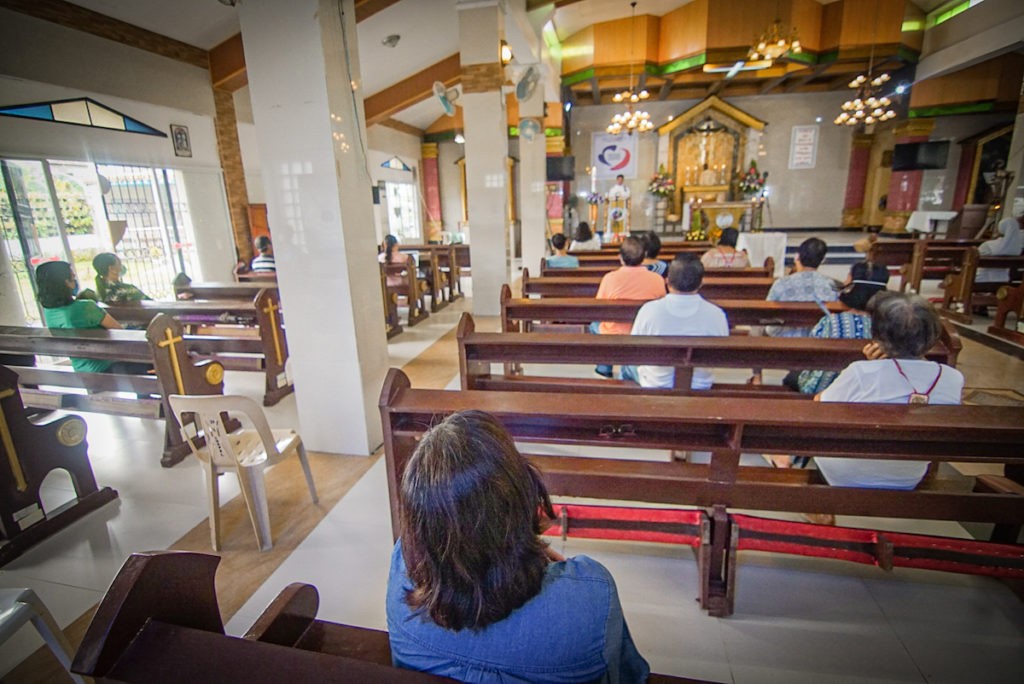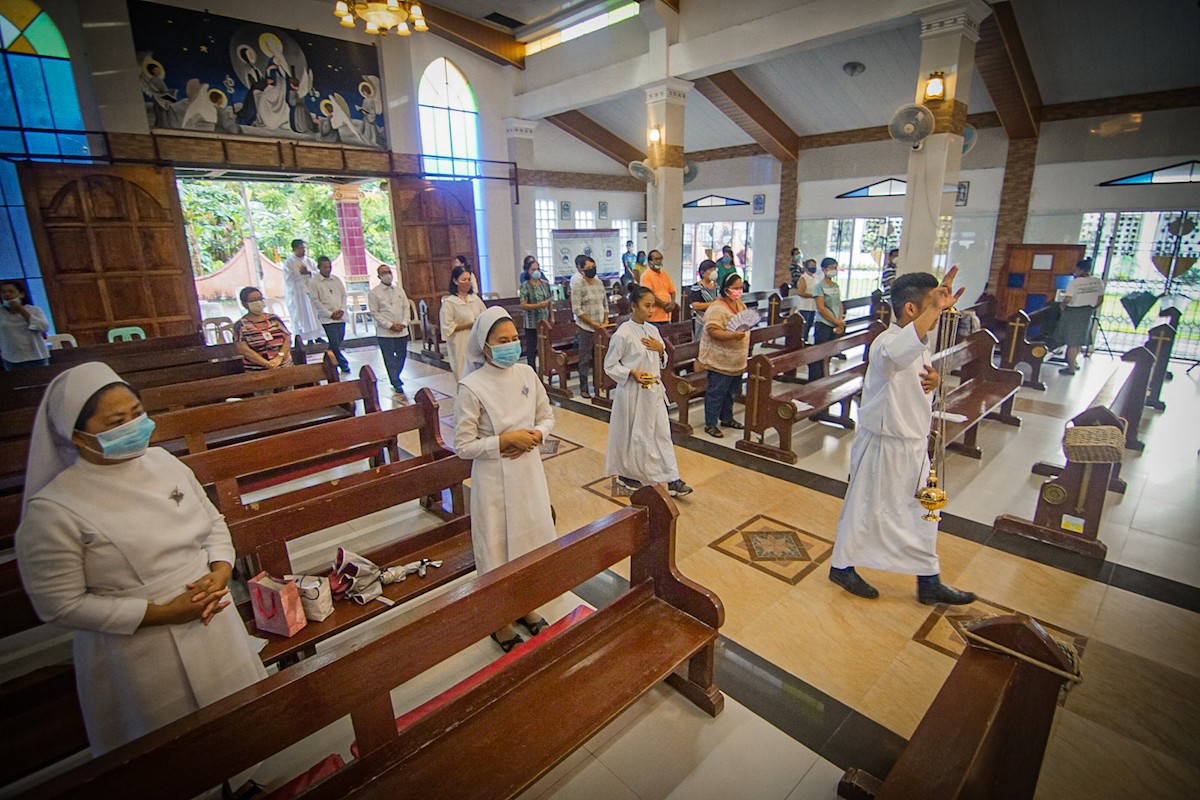A diocese in the central Philippines has resumed holding public Masses on Sunday, April 25, after the city government of Borongan in Eastern Samar province lifted prohibitions on religious gathering.
The Diocese of Borongan, whose jurisdiction covers the entire Eastern Samar province, did not have a single case of the new coronavirus disease.
Civil and religious leaders, however, said social distancing and stay-at-home orders continue amid a relaxed implementation of the community quarantine in the area.
In many places across the country, however, public Masses continue to be suspended and religious celebrations are broadcast on television and radio and streamed online.
“This will be the arrangement until future circumstances may warrant that they should be suspended again for the sake of the public good,” said Bishop Crispin Varquez of Borongan in a circular released over the weekend.
On April 24, Mayor Jose Ivan Dayan Agda of Borongan City placed the city under a “general community quarantine,” which allows religious activities on the condition that social distancing is observed and that churchgoers will wear face masks.
The mayor also urged churches and religious organizations to disinfect places of worship.
In his circular, Bishop Varquez said Masses should strictly observe relevant health precautions.
He also suggested that the number of churchgoers would be limited to only one-third of the actual seating capacity of a church or chapel.
The prelate reminded parish priests to ask the help of lay leaders in the implementation of the required health protocols, including the distribution of Holy Communion.
He also discouraged the holding of hands in the singing of the Lord’s Prayer, the shaking of hands when greeting each other peace, and the touching and kissing of religious images.
The bishop urged parish priests to celebrate more Masses to accommodate parishioners who want to attend the celebration.
“Vulnerable persons,” including the elderly, minors, the sick, pregnant women, and persons with history of pulmonary ailments or diseases, are dispensed from their religious obligations “until the situation returns to normal.”

In Manila, Bishop Broderick Pabillo, apostolic administrator of the archdiocese, said religious celebrations should also be considered “essential services” that can be allowed during the lockdown.
The prelate said people “need the assurance of a benign higher power on whom they can depend in this time of uncertainty.”
“This is given by religion, more so in the Philippines, where the people are very religious,” said Bishop Pabillo in a statement.
He said religion is very important to Filipinos as seen during the lockdown when the faithful turned to online Masses and other Church services to find comfort and strength.
“These services give meaning to their struggles and assure them that they are not alone, that all these will pass away,” he said.
“There is a loving God in whom they can depend. All of these keep them spiritually strong and psychologically sane,” said the bishop.
The prelate said the sign that things are going back to “normal” is when people are again able to go to church and attend the services.
Bishop Pabillo said necessary precautions should be taken, like the proper social distancing and the sanitation of churches.
“We cannot also just go back to the old practices as before. Many things will also change in the way we do our services in the Church. This is already taken as a given,” he said.
“But allowing people to go back to church to thank the Lord, to ask for his protection and implore his help, are deemed very important by the people,” said the bishop.
He said that if authorities want to reassure people “that we are on the way to victory in our fight against the virus, let us allow the people the opportunity to express their faith within our churches.”
On April 24, Philippine President Rodrigo Duterte announced the extension of the “enhanced community quarantine” until May 15 in areas where cases of COVID-19 are high.
Other provinces, which are considered moderate and low-risk or areas with zero or very low cases of transmission, will be placed under “general community quarantine” starting May 1.
In these areas, the general population can go out of their homes to access basic necessities but those below 21 years of age and those above 60 are required to stay home.
Non-leisure stores and shops will “partially open” and the education department may continue classes and issue credentials to students.
Priority and essential construction projects will also resume, and public transportation may operate at a reduced capacity.
Local government units will still enforce curfew at night and ports may operate to ensure the unhampered movement of goods.
“It is noteworthy, however, that in many lists, religious services are not included,” said Bishop Pabillo.
“Is this a sign of secularism that religion is not considered as important at all in the life of the people, that it is optional and can easily be dispensed with?” he said.
Mark Saludes contributed to this report.







